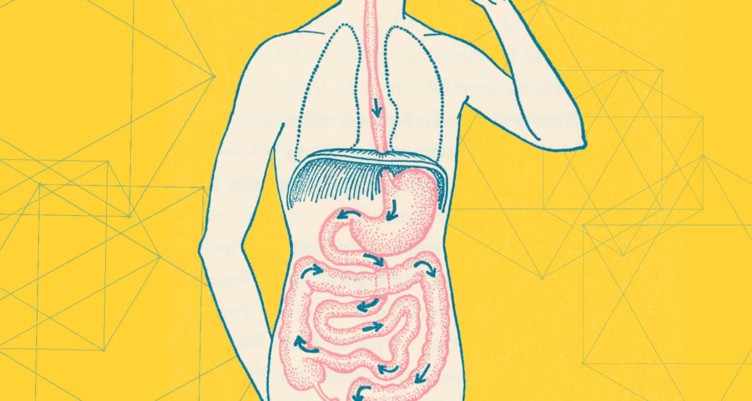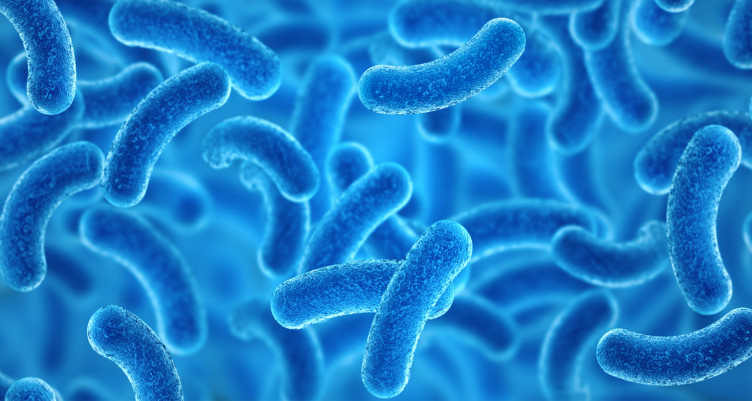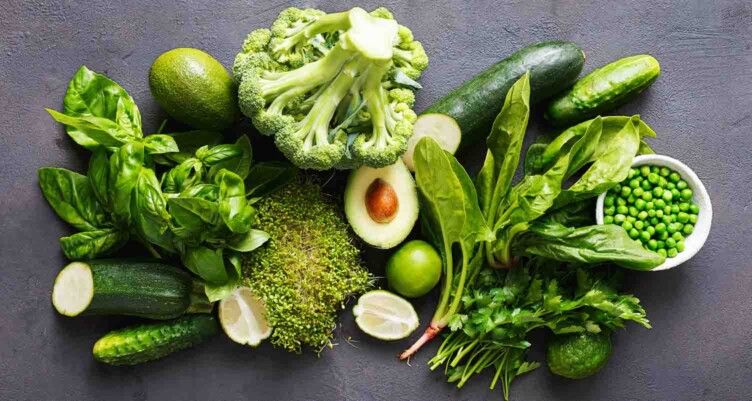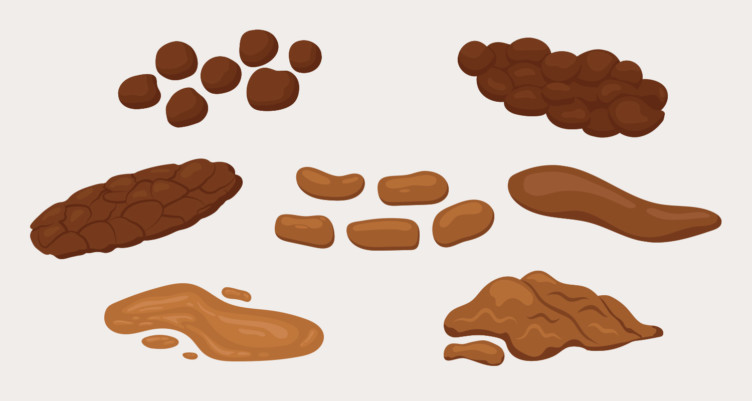How to Improve Gut Health and Support Your Microbiome

- Your gut health plays a role in everything from your mood to your immune function.
- Your gut microbiome is made up of good and bad bacteria.
- Find out how to support optimal gut health, from gut-friendly foods to daily supplements like Bulletproof InnerFuel Prebiotic.
For total wellness from the top down, start with your gut. Gut health can have an impact on everything from your skin to your metabolism to your mental wellbeing. But keeping your gut healthy is no small task-—there are tens of billions of microbes in your digestive tract that can be affected by stress, diet, antibiotics and poor sleep. Consider these the master puppeteers of a healthy gut.
Keep reading to find out what makes these tiny bugs tick, and how you can support healthy digestion—and a healthier you—-with the right gut health foods and wellness supplements.
What is gut health?

Your body is home to trillions of microscopic organisms, such as bacteria, fungi, viruses and other microbes. This busy ecosystem of microorganisms that inhabits almost every part of you is called the human gut microbiome.
Most of your microbes live in your gut (scientists have discovered over 1,000 species of bacteria here).[1] They digest your food, support your immune system, protect your intestines, remove environmental toxins from the body, produce B vitamins and help generate vitamin K.[2]
Everyone’s gut microbiome is unique, although certain combinations of microbes (and a diverse mix of them) are the hallmarks of a healthy gut.[3]
Gut Health Starts Young
For decades, it’s been believed that you got your first microbes when you passed through your mother’s birth canal. But, studies in recent years have found small traces of bacteria in the amniotic fluid in the placenta and the intestines of the fetus. This suggests that gut microbiome may develop while a baby is still in the womb.[4]
During the first couple of years of life, your microbiome changes due to microbes in breast milk, antibiotics and your first solid foods. Your gut microbiota stabilizes around the age of 3.[5] This early development of intestinal flora is critical because it can set the tone of your gut health for the rest of your life.
Scientists have started taking a much closer look at the gut microbiome and its connection to almost everything in the body. A gut that’s out of balance can lead to all kinds of challenges, such as digestive issues, skin conditions and even mental disturbances.[6]
What are the symptoms of an imbalanced gut?

When your gut bacteria are out of balance, your body isn’t able to digest food as well. If you’re feeling or noticing any of the following symptoms, you may have a gut imbalance:
- Food sensitivities or allergies
- Digestive problems, such as occasional gas and bloating
- Weight changes
- Skin issues
- Fatigue
- Mood swings
- Difficulty concentrating[7]
Did you know? Your gut bacteria can also affect your immune system. In fact, gut health and immune health go hand-in-hand, which is yet another reason to keep your gut balanced and healthy.
What impacts gut health?

Keeping your gut in balance is a delicate dance, and there’s a lot that can tilt it in the wrong direction. As an adult, the health of your gut microbiome shifts when you do any of the following:[8]
- Eat processed foods
- Take antibiotics
- Drink too much alcohol or smoke cigarettes
- Experience stress
- Have poor sleep
- Lose or gain weight
- Travel overseas or to new environments
Related: How to Restore Gut Flora After Taking Antibiotics
How can I improve my gut health?

Improving your gut health starts with what you eat. After all, good gut bacteria eat what you eat so you want to feed them well. Make these food changes to nourish good gut bacteria.
Gut health foods
- Eat fermented foods: You can get probiotics from fermented foods, like kimchi, sauerkraut and kefir.
- Cut back on sugar: Bad bacteria love sugar and feed off of it. Studies have found that eating high amounts of sugar interrupts the balance of the gut microbiome and can increase inflammation in the body.[9] Cut back on sugar (including the fructose in fruit) that’s found in low-nutrient carbohydrates, conventional dairy and alcohol.
- Eat more whole food: Reach for unprocessed foods, such as whole grains, fruits, vegetables and legumes. Have a hard time eating your greens? Use this guide on how to eat more vegetables.
- Up your fiber intake: Fiber plays an important role in gut health. It feeds the good bacteria in our gut, promotes regular bowel movements and keeps you feeling fuller for longer. Some high-fiber foods to include in your diet include pears, leafy greens, nuts, apples, root vegetables and legumes. You can also take a prebiotic supplement, which feeds the microorganisms in your gut. Our Bulletproof InnerFuel Prebiotic is easy to mix into your favorite drinks for ultimate gut protection.
Related: What Is Fiber? Why Fiber Matters and How to Get More of It
Gut health supplements

Not all gut health supplements are the same. While some help balance beneficial gut bacteria, others may make you feel lousy. Here’s what you should know about how to improve gut health with targeted supplements.
Take probiotics for gut health
Probiotic supplements may help support gut health by adding beneficial bacteria to your gut microbiome. We suggest starting with Bifidobacterium infantis, Bifidobacterium longum, and Lactobacillus plantarum.
But before you buy a probiotic supplement, it’s important to learn everything you need to know about probiotics and how they work. It’s important to understand which strains to avoid since some can increase your levels of histamine, the same chemical your body produces during an allergic reaction. Too much histamine can cause inflammation in the body.[10]
Feed your good bacteria prebiotics
Probiotics need to eat to flourish. This is where Prebiotics come in. Prebiotics can feed your good gut bacteria.[11] You can get prebiotics from several food sources, such as:
- Vegetables rich in soluble dietary fiber (sweet potatoes, Brussels sprouts and leeks)
- Cocoa (chocolate)
- Garlic
- Flaxseeds
- Oats
- Bananas
- Onions
- Foods high in resistant starch (plantain and green banana flour, raw potato starch and cooked and cooled white rice)
If you’re struggling to get enough prebiotics in your diet, you can rely on our Bulletproof InnerFuel Prebiotic, which feeds the good bacteria and relieves digestive discomfort.
Get more collagen in your diet
Collagen is good for gut health. As one of the building blocks of your gastrointestinal tract, collagen may help aid in digestion, mitigate leaky gut syndrome and repair the gut lining.[12]
To reap these benefits, eat collagen-rich foods, such as bone broth, chicken and fish. You can also try Bulletproof Collagen Protein Gut Health, which is made with beneficial ingredients to support a healthy gut microbiome.
Take activated charcoal
Activated coconut charcoal is a form of carbon that binds to toxins and chemicals in the gut. It has been used for thousands of years to detoxify the body and improve digestive health.[13] Read more about the benefits of activated charcoal and how to work it into your diet, when needed.
How to test your gut health

If you want to keep your digestive game strong, it’s important to trust your gut. But to do that, you must first understand it. Here’s how to test your gut health:
- Get to know your poop: Becoming an expert on your own stools tells you a lot about what’s going on in your gut. Check out this handy poop chart to help you identify any problem areas. You want to look at the stool’s consistency, whether it floats or sinks, its color and how often you go (once or twice a day is a sign of strong digestion, while occasional constipation may be a red flag).
- Take a gut test: You can now send a fecal sample from home to a company like Viome. They send you a test kit in the mail and you pay them a fee to analyze your stools. You’ll receive a detailed report with a list of all the bacteria in your gut, how your microbiome compares to other people, how to keep your healthy bacteria thriving with supplements and diet recommendations. You can test regularly to monitor your progress and see if any changes you made are working to heal your gut.
- Talk to your doctor: Talk to your healthcare provider about your gut health and digestion. They can help you understand your gut, suggest lifestyle and dietary changes and refer you to a gastroenterologist.
It might surprise you to think that gut health impacts mental health, energy and immunity. But it makes sense when you think about it. Your gut microbiome handles breaking down the food you turn into energy that powers your entire body, from your muscles to your brain. So, if you want to take care of your health, feel great and build a strong foundation for wellness, go with your gut.
Read next: The Immune System in Your Gut: What We Know So Far
Give us 30 days and we'll give you more energy. Get tips, recipes and more that will help you become the best version of YOU.
This article has been updated with new content.



